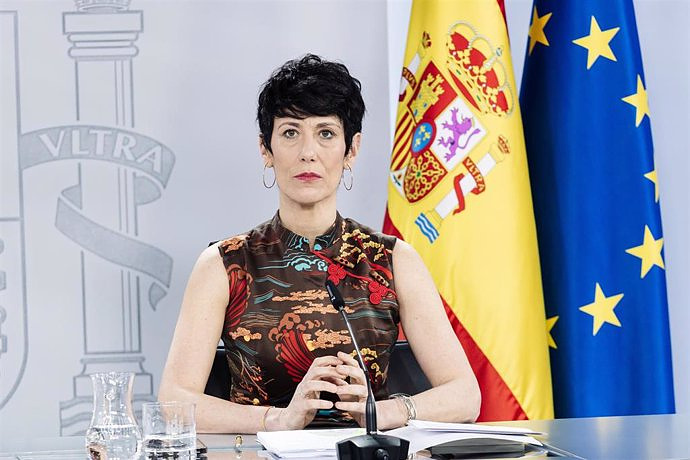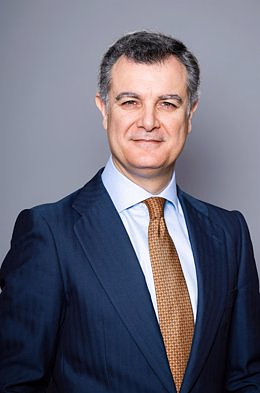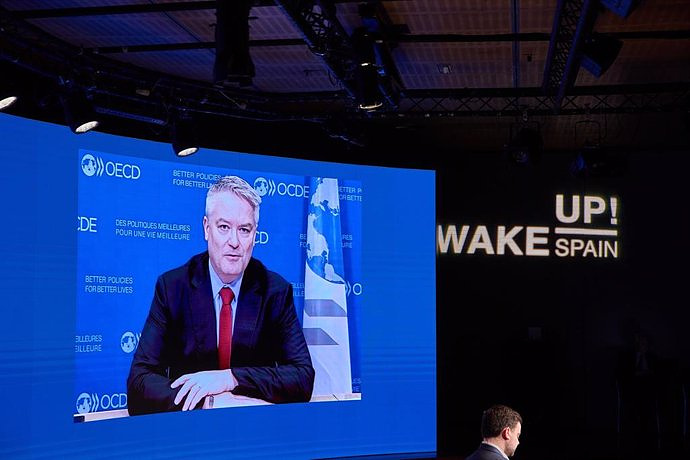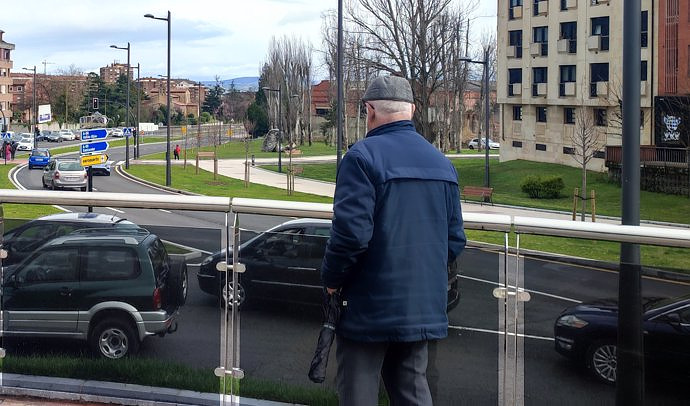BRUSELAS, 28 Sep. (EUROPA PRESS) -
The European Commission on Wednesday urged the Member States to modernize their minimum vital income by increasing the economic endowment to fight poverty and social exclusion in Europe in a context of previous high energy levels due to the Russian military invasion of Ukraine.
In a recommendation to the Twenty-seven, the Community Executive has proposed that the EU countries raise the minimum income to guarantee social inclusion and promote the integration into the labor market of those who can work but have serious difficulties finding a job.
At a time when many people are struggling to make ends meet, it will be important this autumn for member states to modernize their social safety nets with a focus on active inclusion to help those most in need. of the European Commission, Valdis Dombrovskis, in a statement.
The minimum vital income is articulated as a series of payments that help households that need it to close the gap up to a certain level of income to have a decent life. In this framework, Brussels has recommended improving incentives to promote integration in the labor market as well as investment in training and education.
In addition, the Community Executive has recommended improving the transparency of the minimum vital income system, that the financial endowment of the support be reviewed and adjusted annually, that the decision to grant or not this aid be communicated within 30 days from the request. and, if it is granted, that an individualized inclusion plan be provided to the beneficiary within a period of three months.
In this sense, Brussels has drawn attention to the importance of this instrument during "economic recessions", since it helps cushion the fall in household income of vulnerable people and contributes to inclusive growth.
"More than one in five people in the EU are at risk of poverty and social exclusion", explained the Commissioner for Employment and Social Rights, Nicolas Schmit, who clarified that all Member States have minimum vital income schemes but they do not always "reach all those in need".
The minimum vital income is thus configured as an active tool to improve the prospects of access to employment and, as the Community Executive has pointed out, if it is well designed, this tool allows alleviating poverty, encouraging labor integration with some sustainable budget costs.
The European Commission has recommended that the design of this minimum income take advantage of the job opportunities of the green and digital transitions and that the beneficiaries have access to social services such as health and education and essential services such as electricity or water.
With this proposal, Brussels intends to achieve the goal that by 2030 the number of people at risk of poverty and exclusion has been reduced by at least 15 million people, as established in the Action Plan of the European Pillar of Social Rights and that 78% of the European population aged 20 to 64 is employed.
The Community Executive has presented a proposal to protect people and the environment from asbestos both in the health field and in labor protection, since it is responsible for many preventable deaths in the EU.
The package presented by Brussels includes a proposal to modify the directive on asbestos at work to improve the protection of employees and reduce their exposure to this substance.
The other leg of the European Commission's proposal consists of a communication to address asbestos in a comprehensive manner and improve the diagnosis and treatment of diseases caused by it, as well as the identification, elimination and treatment of asbestos waste.
Despite the fact that all uses of asbestos have been prohibited in the EU since 2005, this substance is still present in buildings and poses a threat to health.

 Exploring Cardano: Inner Workings and Advantages of this Cryptocurrency
Exploring Cardano: Inner Workings and Advantages of this Cryptocurrency Seville.- Economy.- Innova.- STSA inaugurates its new painting and sealing hangar in San Pablo, for 18 million
Seville.- Economy.- Innova.- STSA inaugurates its new painting and sealing hangar in San Pablo, for 18 million Innova.- More than 300 volunteers join the Andalucía Compromiso Digital network in one month to facilitate access to ICT
Innova.- More than 300 volunteers join the Andalucía Compromiso Digital network in one month to facilitate access to ICT Innova.-AMP.- Ayesa acquires 51% of Sadiel, which will create new technological engineering products and expand markets
Innova.-AMP.- Ayesa acquires 51% of Sadiel, which will create new technological engineering products and expand markets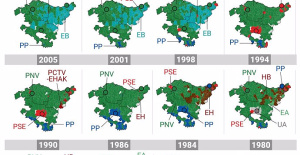 Historical results of the 2024 Basque elections, municipality by municipality
Historical results of the 2024 Basque elections, municipality by municipality Iran assures that any action by Israel will have an "immediate and highest level" response: "They will regret it"
Iran assures that any action by Israel will have an "immediate and highest level" response: "They will regret it"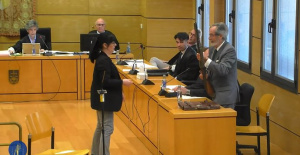 The Ciudad Real Court sentences the man who killed a thief with two shots in his home to 6 years
The Ciudad Real Court sentences the man who killed a thief with two shots in his home to 6 years PP and PSOE clash in the Senate over Koldo's appearance after a socialist writing on a work plan
PP and PSOE clash in the Senate over Koldo's appearance after a socialist writing on a work plan How Blockchain in being used to shape the future
How Blockchain in being used to shape the future Not just BTC and ETH: Here Are Some More Interesting Coins Worth Focusing on
Not just BTC and ETH: Here Are Some More Interesting Coins Worth Focusing on Valencia displays its "innovative and technological potential" at the Emerge Americas event in Miami
Valencia displays its "innovative and technological potential" at the Emerge Americas event in Miami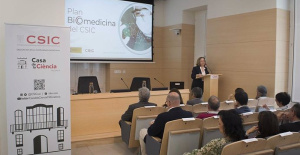 The CSIC incorporates the challenges of robotics, nanotechnology and AI in the new strategic plan for biomedicine
The CSIC incorporates the challenges of robotics, nanotechnology and AI in the new strategic plan for biomedicine Innovation allocates 9.1 million to train 74,000 people and guarantee digital inclusion
Innovation allocates 9.1 million to train 74,000 people and guarantee digital inclusion LIFE SPOT manages to develop new green treatments that eliminate groundwater contamination
LIFE SPOT manages to develop new green treatments that eliminate groundwater contamination A million people demonstrate in France against Macron's pension reform
A million people demonstrate in France against Macron's pension reform Russia launches several missiles against "critical infrastructure" in the city of Zaporizhia
Russia launches several missiles against "critical infrastructure" in the city of Zaporizhia A "procession" remembers the dead of the Calabria shipwreck as bodies continue to wash up on the shore
A "procession" remembers the dead of the Calabria shipwreck as bodies continue to wash up on the shore Prison sentences handed down for three prominent Hong Kong pro-democracy activists
Prison sentences handed down for three prominent Hong Kong pro-democracy activists ETH continues to leave trading platforms, Ethereum balance on exchanges lowest in 3 years
ETH continues to leave trading platforms, Ethereum balance on exchanges lowest in 3 years Investors invest $450 million in Consensys, Ethereum incubator now valued at $7 billion
Investors invest $450 million in Consensys, Ethereum incubator now valued at $7 billion Alchemy Integrates Ethereum L2 Product Starknet to Enhance Web3 Scalability at a Price 100x Lower Than L1 Fees
Alchemy Integrates Ethereum L2 Product Starknet to Enhance Web3 Scalability at a Price 100x Lower Than L1 Fees Mining Report: Bitcoin's Electricity Consumption Declines by 25% in Q1 2022
Mining Report: Bitcoin's Electricity Consumption Declines by 25% in Q1 2022 Oil-to-Bitcoin Mining Firm Crusoe Energy Systems Raised $505 Million
Oil-to-Bitcoin Mining Firm Crusoe Energy Systems Raised $505 Million Microbt reveals the latest Bitcoin mining rigs -- Machines produce up to 126 TH/s with custom 5nm chip design
Microbt reveals the latest Bitcoin mining rigs -- Machines produce up to 126 TH/s with custom 5nm chip design Bitcoin's Mining Difficulty Hits a Lifetime High, With More Than 90% of BTC Supply Issued
Bitcoin's Mining Difficulty Hits a Lifetime High, With More Than 90% of BTC Supply Issued The Biggest Movers are Near, EOS, and RUNE during Friday's Selloff
The Biggest Movers are Near, EOS, and RUNE during Friday's Selloff Global Markets Spooked by a Hawkish Fed and Covid, Stocks and Crypto Gain After Musk Buys Twitter
Global Markets Spooked by a Hawkish Fed and Covid, Stocks and Crypto Gain After Musk Buys Twitter Bitso to offset carbon emissions from the Trading Platform's ERC20, ETH, and BTC Transactions
Bitso to offset carbon emissions from the Trading Platform's ERC20, ETH, and BTC Transactions Draftkings Announces 2022 College Hoops NFT Selection for March Madness
Draftkings Announces 2022 College Hoops NFT Selection for March Madness

